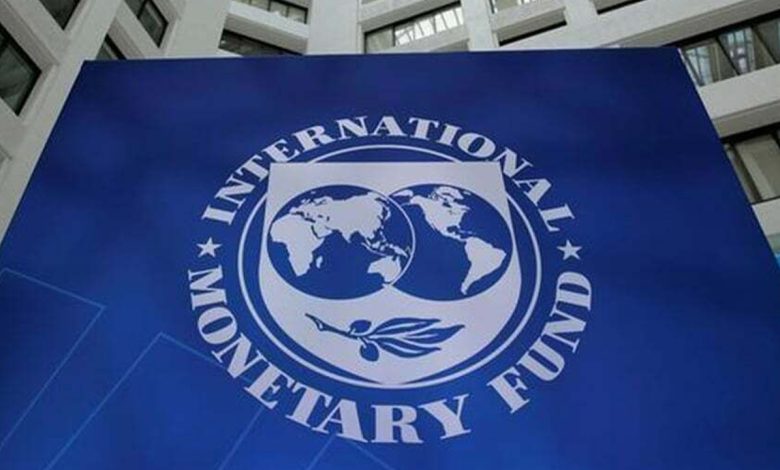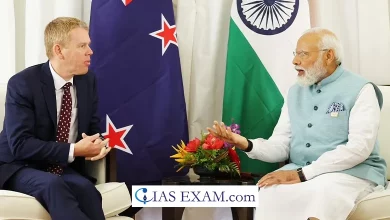
Context- Under the Extended Fund Facility (EFF), the International Monetary Fund (IMF) recently confirmed a USD 3 billion bailout plan for Sri Lanka’s struggling economy.
Key Highlights
- Due to Pakistan’s severe economic crisis, which is characterized by a falling currency and an increase in prices, it is also negotiating with Pakistan for a 1.1 billion US dollar bailout plan.
IMF bailouts: what are they?
- Bailout: A bailout is a general term for providing financial assistance to a company or nation that is in danger of going bankrupt.
- It can come in the form of stock purchases, loans, cash, or bonds.
- A bailout may (not) require repayment however is much of the time joined by more prominent oversight and guidelines.
- IMF Loans: When their economies are confronted with a significant macroeconomic risk, most commonly a currency crisis, countries typically seek assistance from the IMF.
- In order to meet their obligations related to their external debt and other obligations, purchase essential imports, and support the exchange value of their currencies, nations seek such assistance from the IMF.
What are the causes of a currency crisis?
-
- Gross currency mismanagement by a nation’s central bank (often under pressure from the government in power). to generate new funds for populist expenditures).
- Rapid expansion of the total amount of money available, which raises prices and reduces the value of the currency in exchange.
- A crisis in the currency results in:
-
- Economic activity disruption (people become reluctant to accept the currency in exchange for goods and services) Foreign investors’ reluctance to invest in such an economy
About IMF
- The International Monetary Fund (IMF) is an international organization that works to alleviate poverty, encourage international trade, and foster financial stability.
- It was established following the 1945 Bretton Woods Conference.
- In the beginning, the International Monetary Fund’s primary objective was to promote international economic coordination to stop competing currency devaluations by nations attempting to promote their own exports.
- It eventually developed into a lender of last resort for nations whose governments were confronted with severe currency crises.
- Since 1993, India has never sought financial assistance from the IMF. By May 2000, all of the loans taken from the IMF had been repaid.
How does the IMF provide a bailout?
-
- Procedure:
- The IMF loans cash to the grieved economies frequently as Extraordinary Drawing Privileges (SDRs).
- The United States dollar, the euro, the Chinese yuan, the Japanese yen, and the British pound are all represented by SDRs.
- This loaning is completed by various loaning projects, for example, expanded credit office, adaptable credit line, reserve arrangements, and so on.
- Nations getting the bailout can involve the SDRs for different purposes relying upon their singular conditions.
- Conditions:
- In order for a nation to receive loans from the IMF, it might be necessary for it to agree to carry out some structural reforms.
- Procedure:
- Criticism of the Terms of the Loan:
-
- The IMF is criticized by proponents of free markets as being too interventionist because they believe it is too harsh on the public. They are frequently accused of being influenced by international politics.
- For lending to be successful, conditions must be met; If a nation’s bad policies that led to the crisis are not changed, it may not make sense for the IMF to give it money.
- The bailout funds are more likely to be misappropriated in nations with high levels of corruption and poor institutional functioning.
What effects does providing IMF bailouts have?
- Advantages:
- They assist in resolving BoP issues without resorting to measures that could be even more detrimental to national and international prosperity and ensure the country’s continued existence in the face of challenging economic conditions.
- When industries that are too large to fail begin to disintegrate, it is possible to avoid a complete financial system collapse.
- It is possible to avoid institutions going bankrupt, which is necessary for the overall markets to run smoothly.
- The International Monetary Fund (IMF) can assist a nation in implementing economic reforms and strengthening its institutions in addition to providing financial support.
- Disadvantages:
- The IMF’s stringent requirements for economic policy reforms may result in lower government spending, higher taxes, and other outcomes. which may result in social unrest and political unpopularity.
- Looking for an IMF bailout may hurt a country’s standing according to financial backers and loan specialists, making it harder for the country to get to global capital business sectors.
- Rehashed IMF bailouts can make a feeling of reliance on outside subsidizing and deter nations from carrying out important long haul changes to resolve their financial issues.





.png)



